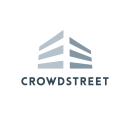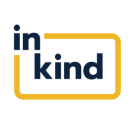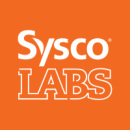The rise of hybrid and remote work environments has upended the concept of the office, redefined how we interact with colleagues and tasked leaders with reconfiguring their approach to fostering company culture in the face of new challenges.
In a world where — according to a 2022 Gallup survey — only one-fifth of employees reported working in person full time, a strong company culture can boost engagement and interconnectedness.
But a weak company culture carries heightened risks and detriments. In a 2022 Buffer survey, 52 percent of respondents said they felt less connected to their co-workers after shifting to remote work. Meanwhile, a 2021 Society for Human Resource Management survey saw CEOs and chief HR officers rank maintaining company culture as the top challenge related to remote work.
As organizations increasingly double down on hybrid and remote work models, strengthening and unifying company culture has taken top priority. But how can leaders and employees work together to fortify their culture?
At Carrot Fertility, an ingrained commitment to advancing the company’s mission unifies its team members and feeds directly into sustaining its culture. Meanwhile, an asynchronous approach to collaboration and an in-person coworking program ensure connectedness and camaraderie aren’t sacrificed in favor of a fully remote model.
Elsewhere, CrowdStreet maintains a strong culture alongside its flexible approach to hybrid work by providing avenues for discussion and community-building. “Affinity, identity and special interest Slack channels help us stay connected in very meaningful ways outside of business operations,” said Talent Experience Partner Shaquaya Perdue.
Leaders from Carrot Fertility, CrowdStreet and three other companies shared how their cultures have persisted, even as their team members exist outside the confines of an office.

Carrot Fertility, one of Built In’s Best Places to Work in 2023, is a fertility care platform that offers a comprehensive clinical care program.
Is your team fully remote, in-office or some mix of the two?
Carrot is fully remote with team members across the U.S. We previously had an office in the San Francisco Bay Area and still have a large employee population there, but one of the benefits of going fully remote is that we’ve been able to hire incredible talent from all over, including in the Austin area.
Given that our team members are all across the country, we have adopted an async work culture where most of our discussions and check-ins are done via Slack, and meetings are intentionally scheduled for group discussion and greater collaboration. This helps to lessen the toll of “Zoom fatigue.”
Since going fully remote, we’ve also launched a coworking program, which provides our team members with the opportunity to get out of the house and work from a WeWork or similar space, so they have the option of in-person work without sacrificing flexibility.
We also leverage Slack-integrated apps that help us generate new connections across teams, groups or the company. We like to think of this as a virtual water cooler! These tools allow us to pair up people who don’t necessarily have a chance to work together day to day so they can get to know each other and create new connections.
What are some key ways you maintain a strong company culture? And how have you adapted those strategies for your current work model?
One of the main ways we keep our culture strong is by staying true to our mission of fertility care for all. That shows up in everything we do, including our internal communications, monthly all-hands meetings and more. We often share customer and member stories that highlight Carrot’s impact and help us keep working toward a common goal together.
One of the main ways we keep our culture strong is by staying true to our mission of fertility care for all. That shows up in everything we do.”
There are several other ways in which we promote our culture through meaningful moments — both virtual and in person. For new hires, this starts during the onboarding experience. All new team members attend Carrot University during their first few weeks at Carrot, where they virtually meet our exec team and other leaders across departments.
We also host several in-person events throughout the year, such as our annual Commercial Team Kickoff, which just took place in Las Vegas in January. Our teams travel at least once or twice a year for off-sites to align on key initiatives and have fun with their teammates. Last year, we held our first annual Carrot Connect, a weeklong series of virtual and in-person events to bring people together, including a coworking Wednesday where people local to one another were encouraged to meet up.
What role do employees play in maintaining and strengthening the company culture?
Our team members are a huge part of what makes Carrot a great place to work. It’s the type of culture where idea-sharing is encouraged and we’re all empowered to turn our ideas into reality.
One great example is our Employee Community Groups. These are employee-led groups focused on fostering diversity, inclusion, equity and belonging within Carrot. These groups help employees build stronger connections, offer social, educational and community activities, create development opportunities and increase engagement among colleagues.
Our ECGs also host educational, entertaining and philanthropic virtual events to engage Carrots everywhere. For example, Rainbow Carrots, our LGBTQ+ ECG, hosted drag storytime to teach our team about the history of drag, and Las Zanahorias, our Latinx ECG, invited a best-selling Latina author for a fireside discussion about her memoir. We also include a coffee chat with a member of our ECGs as an option during the interview process so that candidates can get a feel for the culture here at Carrot outside of the day-to-day responsibilities of the role they are interviewing for.
AWL is a customer acquisition marketing company that is focused on the insurance industry.
Is your team fully remote, in-office or some mix of the two?
All Web Leads’ teams all have different work dynamics. A perfect example is our admin, helpdesk and HR teams. Administration is fully on-site, helpdesk is mostly remote and HR is hybrid. The on-site component is important for some teams so they are visible and accessible to all employees and have time to collaborate in person about ways to improve the employee experience, payroll processing and inter-team communication. All teams work closely within Teams and host relaxed bi-weekly, weekly or sometimes daily team meetings to keep in tune with each other.
In most cases at AWL, teams are able to work and collaborate either fully remotely or in a hybrid setting. The popular days to come into the office are Tuesdays, so you can find us hosting monthly events — like Valentine’s Day, Cinco de Mayo and Halloween parties – on a Tuesday. For our fully remote employees, the fun does not stop. Teams are encouraged to join any of our virtual scheduled events as well. What comes naturally to AWLers are our daily interactions that are not only at a professional level but a personal one too.
What are some key ways you maintain a strong company culture? And how have you adapted those strategies for your current work model?
AWL always has activities for the teams to participate in, even if we work from home. They keep us engaged by having team meetings where we all get to see each other and have regularly scheduled team gatherings either virtually or in person. We like to celebrate our successes and brainstorm our challenges, always together. We try to encourage people from different departments who don’t talk to one another every day to come together in a Teams room we call “Sanity Check.” We share different interactive posts in that room daily to engage people in conversation. It’s a great brain break to have and an opportunity to share interests with co-workers who may be working across the state!
What role do employees play in maintaining and strengthening the company culture?
Our employees are the backbone of our company culture by embracing our core values of trust, technology, data, passion, collaboration and winning daily. Without personally caring about the importance of these values, AWL would not be successful. We would not have tripled in size during a pandemic. We would not have been able to adapt as quickly to a fully remote environment. Our teams trust and respect each other and are not afraid to question — with healthy conflict — things to improve AWL.
Our teams trust and respect each other and are not afraid to question — with healthy conflict — things to improve AWL.”
Even our fresh hires are embracing the core values to make AWL the best place to work! Additionally, we’re developing a project called “Team Culture.” We’ve chosen some topics we think will interest a lot of our employees — like healthy AWLers, parenting and book club — and we will task individuals from different departments to come together to plan something fun for the people who decided to join that specific group. This project is still on the ground level, but we’re excited to roll it out!
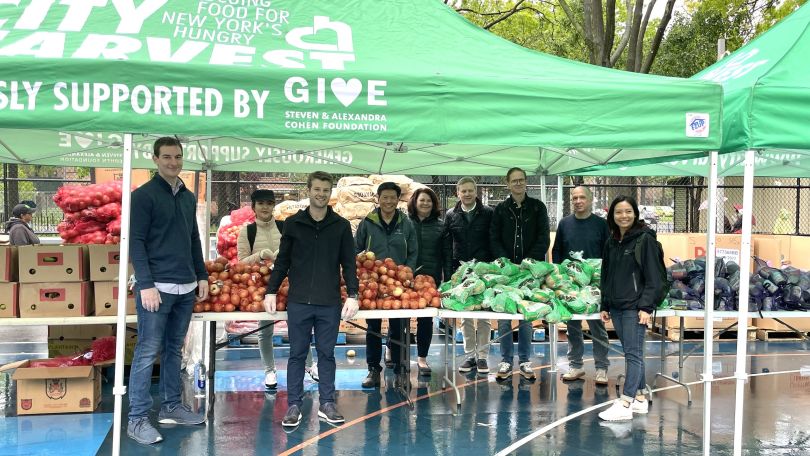
CrowdStreet is a real estate investing platform that provides investors with a way to diversify their portfolios.
Is your team fully remote, in-office or some mix of the two?
We embrace a Work Where You Work Best (W3B) philosophy. Our teams are remote and distributed across the U.S., but some employees prefer a hybrid experience and sometimes work from our offices in Austin and Portland.
What are some key ways you maintain a strong company culture? And how have you adapted those strategies for your current work model?
Pre-pandemic, we were a smaller group of very tight-knit builders working in our Portland office. Since then, we have doubled in size and adopted W3B. Because community was always a critical and organic part of our culture, it has remained important to continue to identify and nurture the ways we can foster a sense of community, even in today’s CrowdStreet.
Affinity, identity and special interest Slack channels help us stay connected in very meaningful ways outside of business operations. Our open-door policy extends to the virtual setting. We still have a bi-weekly all-hands meeting where we can give one another synchronous attention, dialogue and celebration. Tools like Donut and Luna Park allow us to get to know one another, have fun and engage in some friendly competition. Of course, opportunities to get together locally for work, fun or giving back always energize us and help us develop and strengthen connections.
Affinity, identity and special interest Slack channels help us stay connected in very meaningful ways outside of business operations.”
What role do employees play in maintaining and strengthening the company culture?
Employees are absolutely the drivers of our culture. In fact, their #proudstreet channel shoutouts and Culture Builder award peer nominations are the reason recognition is weaved into the day-to-day CrowdStreet experience. Our Corporate Social Responsibility committee is made up of employee volunteers who strategize and facilitate initiatives that ensure we keep DEIBA, sustainability, philanthropy and corporate citizenship at the core of who we are. They led a highly successful on-site charity drive in Austin and a nationwide Impact Day, pioneered our charitable matching program, and made it possible for us to add MLK Day and Juneteenth to our company holidays.

inKind provides restaurants and hospitality groups with funding and offers a customer loyalty platform.
Is your team fully remote, in-office or some mix of the two?
At inKind, our team has a good split, with 60 percent of people being based in the office and in Austin. We are very conscious about how we delineate which departments and roles work best remotely or in person. For example, we feel it is essential for all of our executive members to be based in our headquarters — we are a team that constantly strategizes and problem-solves, and we find those activities happen best in person for companywide decisions. For other teams, we see members better fulfill their roles and provide an essential feedback loop by being remote or in market. Our customer service team, for example, is entirely remote, while our growing regional marketing manager group will be spread across the country, with a few touchpoints back in HQ. As a whole, though, we trust our employees and have baked in a good deal of flexibility, even with our emphasis on having an in-office presence.
We also encourage a regular cadence of communication to solidify cohesion across our team. We have recently implemented an improved system of meetings that encourages efficient communication across and within teams; it also is meant to foster leadership and free up time for non-meeting work. We regularly use Slack to keep up with projects but also just to enjoy the antics of our team members’ kids and pets. Our conference rooms are also hubs of activity, hosting critical meetings, team huddles and hybrid celebrations for holidays and special events. As a hospitality-driven company, we recognize the importance of keeping in contact, sharing time and, often, a meal with our co-workers.
What are some key ways you maintain a strong company culture? And how have you adapted those strategies for your current work model?
The core of our mission is to support and improve an industry that is integral to communities in every town, village and city. We believe that restaurants and bars are the heart of a neighborhood, and we work hard as a company to ensure that these central points are stewarded by good restaurant operators who care as much about the food as they do about their employees and customers. Whether your focal point is improving customer experience, how restaurant employees are treated or how funding should help — not hurt — restaurant operators, each team member is connected by a common purpose to see real impact in one or all of these dimensions.
A couple of our explicit values also do a great job of highlighting what links us together as a diverse community. “Share a Meal” is core to who we are as a company and reinforces behaviors and ideals we hold sacred at inKind. We provide daily, in-office lunch delivery for our team members so we can sit together and chat about the week or find time for a casual follow-up.
Easily our most exciting feature and something unique to inKind is our Ember restaurant. Located a short walk from the office, it is a beautiful space with amazing food and provides limitless opportunities for people to connect and organize food-focused team experiences. Ember provides a practical purpose, too, allowing us to test our technology, loyalty and marketing initiatives live in a real restaurant. Ember is also where we host our monthly “family meal,” a term we borrow from the restaurant industry. It is a time when we reflect on our progress, call out individual achievements and get insight from our CEO on the road ahead.
Easily our most exciting feature and something unique to inKind is our Ember restaurant, a beautiful space with amazing food and limitless opportunities for people to connect.”
We are ambitious and diligent workers at inKind, but we have only really been able to achieve our best results when there is good team cohesion. Sharing a meal is one of the most important ways we work to ensure this.
“Triple Win” demonstrates our commitment to working together and for our various stakeholders. We only accept solutions when all stakeholders benefit: inKind as a company, our restaurant clients and dining patrons. This creates a framework that fosters camaraderie among co-workers across our departments, in person and remote.
What role do employees play in maintaining and strengthening the company culture?
Our people engagement manager, Jackmar Silva, is generally in charge of breathing life into the events, big and small, that fill our calendars with gatherings. She ensures that if you are in Austin or remote, you are included whenever we have events or celebrations. She, along with her committee of spooky collaborators, brought together face painting, food, a mixologist and photo booths to celebrate this year’s Halloween party.
Since the restaurant industry is so large and affects so many groups, there are seemingly limitless opportunities for our team to grow and share our cultural values. This takes center stage at our annual inKind week. It is a time devoted to team building, good food and fun, but also to providing any and all team members with the chance to propose projects big and small, short and long term. Our head of culture, Nick Meyer, organizes this yearly event, and it has resulted in some of our best memories on the team, many of which are memorialized in pictures and artwork around the office.
But not every idea or initiative that has become super popular with inKinders involves a big event. Our annual gingerbread house-building competition is the highlight of the holiday season, featuring a global-warming holiday house and a creepy house that eats visitors. Our chief of staff, Amanda Singer, first came up with this idea and is the official judge and emcee.
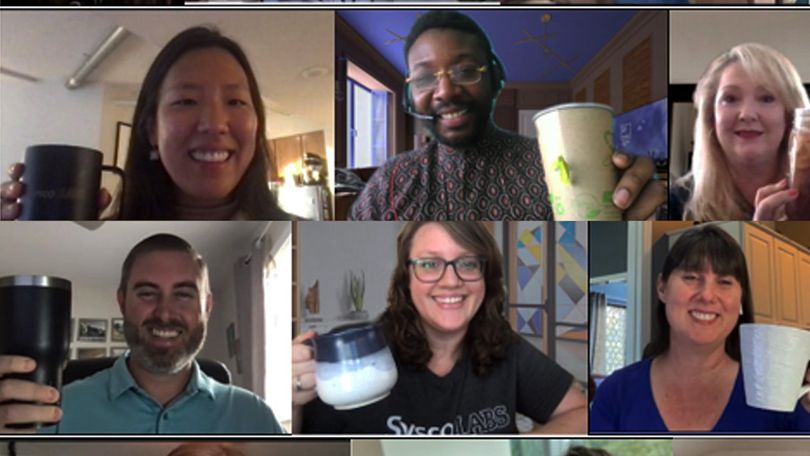
Sysco LABS is focused on transforming the food-service ecosystem through customer and market intelligence, data and agile technology development.
Is your team fully remote, in-office or some mix of the two?
The Sysco LABS team — in the U.S., at least — is headquartered in Austin right on East Sixth. We’ll see some teams and colleagues in the office every week while some come in for special occasions and others work fully remote — working together with Austin-focused folks, our Sysco LABS teams in Sri Lanka and our close partners at Sysco Corporate Technology in Houston.
You can also find any number of LABS teammates on the road or in the field alongside our sales consultants and even in our operations centers mining valuable SME — and customer-based research and insights in support of Sysco’s mission: delivering success through industry-leading people, products and solutions.
We strive to keep everyone at Sysco dedicated to our purpose of connecting the world to share food and care for one another, and that care has got to begin and come from within.
No matter how talented you are on your own, you’re able to work to the best of your capabilities when you are surrounded by a supportive, encouraging environment.
We believe that when employees are happy and content at work, it reflects in how we all act and perform.
No matter how talented you are on your own, you’re able to work to the best of your capabilities when you are surrounded by a supportive, encouraging environment.”
What are some key ways you maintain a strong company culture? And how have you adapted those strategies for your current work model?
When Covid-19 hit, corporate cultures seemingly everywhere came to a halt, and people had to adjust. At Sysco LABS, we knew we had to reinvent how we built and felt belonging, collaboration and togetherness.
We had already been building a Sysco LABS culture committee to support that necessary connective tissue that makes good teams and good organizations — and now it seems like we have the opportunity to be more purpose-driven than ever.
Accomplishments we’re particularly proud of include improving our hiring practices and onboarding processes, connecting to Sysco-wide colleague resource groups and diversity, equity and inclusion efforts, and truly driving that sense of belonging. We’re now even a Texas Mother-Friendly Certified worksite — so that everyone can bring their best selves to work.
Our Sri Lankan team’s own ministry of culture was already driving connection through team building, DEI initiatives, bias trainings, family events and more. So, early on we asked to share successful strategies and find connections wherever we could to build further awareness and connection between our teams, our cultures and our day-to-day activities.
What role do employees play in maintaining and strengthening the company culture?
While the culture committee itself has been nearly entirely employee-led, we’re always working with leadership on buy-in and support.
We do a number of engagement activities — volunteering, a chili cook-off and an upcoming hackathon to unite all of Sysco Technology while sparking innovative approaches to work — but one that has resonated well is our Coffee Challenge.
You have a conversation with someone you don’t work with often — in person or over video — learn a little bit about them and post a picture, and you’re entered into a gift card drawing.
While our activities tie into corporate values, we’re really focused on the simple question, “Do you have a friend at work?” For some people, especially in technology but also in hybrid and remote work environments, it can be hard to build that camaraderie, grow that connective tissue and find a good friend at work that keeps you tied to what you’re doing and what we’re all working toward together. And, hopefully, once you’ve got that one friend, you’ll soon have more.
So, really, that’s our real goal at Sysco LABS and on our culture committee: help everyone find their friend at work.








